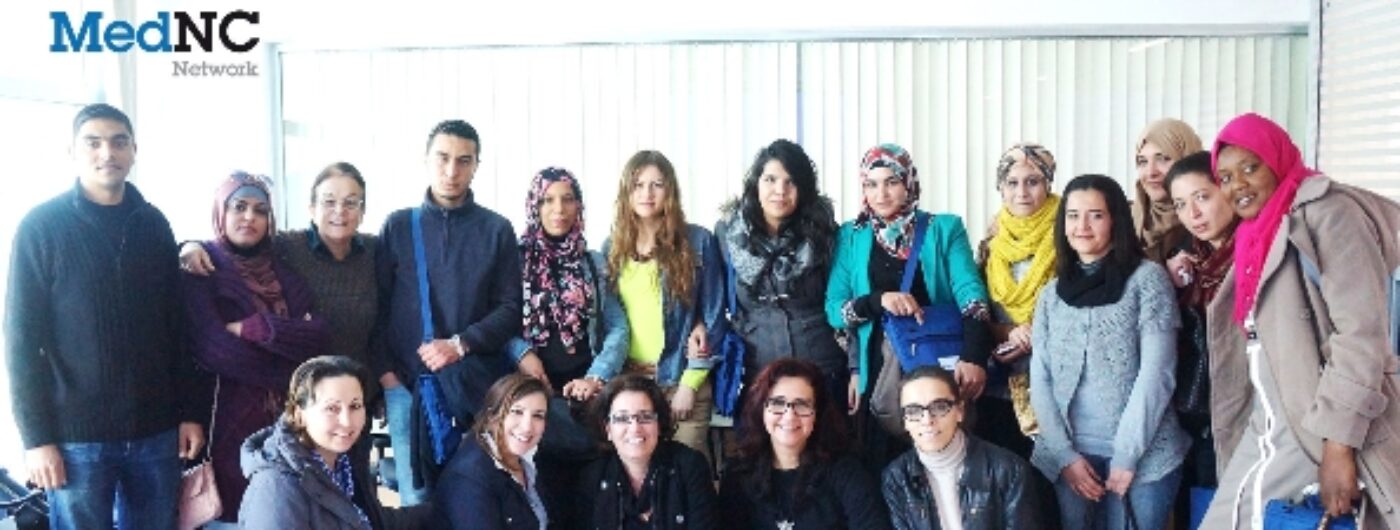
Innovative training to increase employability – UfM project kicks off in Tunisia
Barcelona, 18 February 2014. The ISCAE National Institute (Institut Supérieur de Comptabilité et d’Administration des Entreprises), an organisation under the University of Manouba (Tunisia), recently opened its doors to the first cohort of students in the New Chance Mediterranean Network (MedNC) programme. 22 students are enrolled in the programme, 19 of which are women.
The students participating in the ISCAE New Chance programme — mainly young ISCAE graduates currently in search of employment — will be involved over the next five to six months in several activities which will facilitate their access to the labour market by addressing the gap between job opportunities and skills. The programme includes training in soft skills, namely languages and information technology (IT), and in trade competences such as accounting, management, human resources, coaching and initial working experience in partner companies. Specific sessions will also be devoted to job search techniques, job interviews, conflict management, etc.
This pilot initiative has mobilised 15 volunteer teachers who will accompany the students throughout the programme with personalised follow-up. If the programme is successful, it could be quickly expanded to Tunisia’s other 11 public universities and higher institutes of technological studies.
The ISCAE New Chance programme is promoted by the Office of Economic Cooperation for the Mediterranean and the Middle East (OCEMO) in partnership with Marseille’s Second Chance School (E2C) and the French Agency of Development (AFD). It is supported by Association Nouvelle Chance Tunisie and the Tunisian Ministry of Higher Education and framed under the MedNC project, which was labelled by the 43 UfM member states in December 2014.
The New Chance Mediterranean Network (MedNC) programme is in line with the objectives and criteria set by the Mediterranean Initiative for Jobs (Med4Jobs) and responds to the UfM’s strategic goal of improving the quality of vocational training and higher education in the region. It is an accredited project promoting the social and professional integration of young people currently excluded from the labour market, namely students who dropped out of school and unemployed graduates, with a particular focus on women (60%). This programme is based on an innovative training model inspired by the Second Chance Schools (E2C) teaching model and seeks to develop a network of New Chance-accredited schools for social and professional integration of young people, specifically adapted to the context and needs of three Southern Mediterranean countries involved in the project (Morocco, Tunisia and Algeria).

